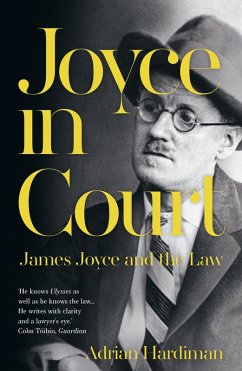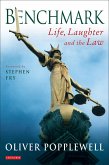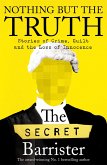Books about the work of James Joyce are an academic industry. Most of them are unreadable and esoteric. Adrian Hardiman's book is both highly readable and strikingly original.
He spent years researching Joyce's obsession with the legal system, and the myriad references to notorious trials in Ulysses and Finnegans Wake. Joyce was fascinated by and felt passionately about miscarriages of justice, and his view of the law was coloured by the potential for grave injustice when policemen and judges are given too much power. Hardiman recreates the colourful, dangerous world of the Edwardian courtrooms of Dublin and London, where the death penalty loomed over many trials.
He brings to life the eccentric barristers, corrupt police and omnipotent judges who made the law so entertaining and so horrifying. This is a remarkable evocation of a vanished world, though Joyce's scepticism about the way evidence is used in criminal trials is still highly relevant.
He spent years researching Joyce's obsession with the legal system, and the myriad references to notorious trials in Ulysses and Finnegans Wake. Joyce was fascinated by and felt passionately about miscarriages of justice, and his view of the law was coloured by the potential for grave injustice when policemen and judges are given too much power. Hardiman recreates the colourful, dangerous world of the Edwardian courtrooms of Dublin and London, where the death penalty loomed over many trials.
He brings to life the eccentric barristers, corrupt police and omnipotent judges who made the law so entertaining and so horrifying. This is a remarkable evocation of a vanished world, though Joyce's scepticism about the way evidence is used in criminal trials is still highly relevant.









